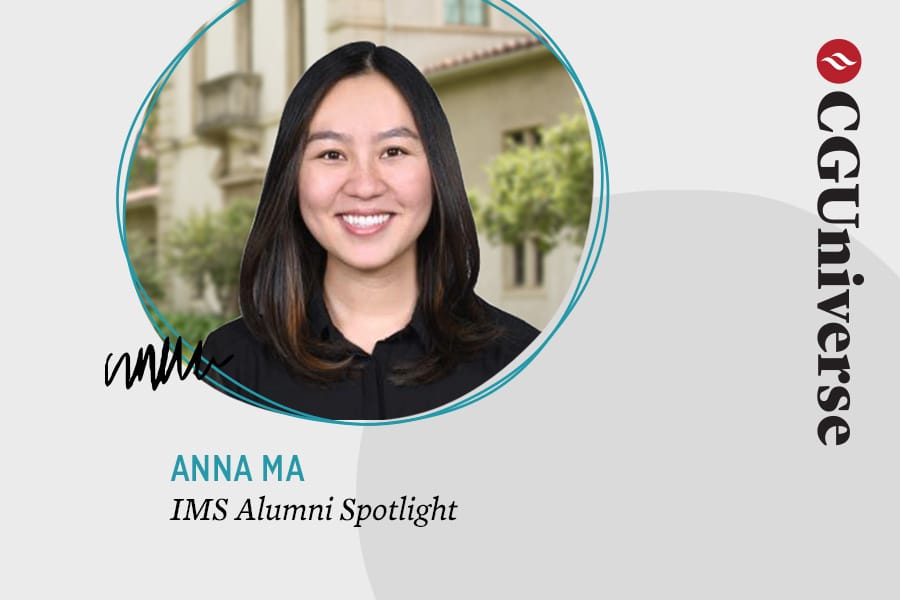Anna Ma Streamlines the Algorithm

Like most people, Anna Ma was scrolling through Netflix, searching for something to watch. But unlike most people, Ma has a PhD in computational science from CGU. This means she isn’t just interested in what Netflix recommends, but how it comes up with its recommendations. Netflix serves content based upon machine learning and past user reviews of content, using a binary model. (“Yes” I like this show or “no” I don’t.)
But all binary questions aren’t created equal, and Ma was interested in finding ways to more intuitively recommend content to users based upon fewer data points. This led to her research question (simplified for those of us without an advanced degree in computational science): Can we ask a smaller number of questions, but in a more adaptive and clever way, and still approximate the function (find a faster way to recommend content that users will enjoy)?
If previously it took 1,000 questions to get to 1% accuracy, how can we use only 30 questions to get to 3% accuracy and therefore streamline the recommendation process? Ma’s recent article, co-authored with Eric Lybrand “On the Number of Faces and Radii of Cells Induced by Gaussian Spherical Tessellations” published in Applied and Computational Harmonic Analyses seeks to explore these questions. Overall, Ma’s research focuses on problems arising in mathematical data science, particularly the design and analysis of iterative algorithms for large-scale data as well as leveraging and developing tools in numerical linear algebra, signal processing, machine learning, and probability. After completing her PhD CGU in 2018, Ma found a home for her research at UC Irvine, where she is an assistant professor in the department of mathematics.
In addition to teaching and research, Ma writes for Girls Angle, a math magazine for high school girls. There, she used text and image-generating AI to write a short story and draw an accompanying image about a princess, a dragon, and math. Using ChatGPT and natural language processing, she used machine learning to write “Needell in a Haystack” a title that plays on the name of her advisor, Deanna Needell.
When asked about her experience at CGU, Ma recounted, “CGU gave me the unique opportunity to work with my thesis advisor, Professor Needell, who is a professor at Claremont Mckenna College. I didn’t realize how impactful her numerical linear algebra class would be, but I still refer to and assign her work to my students.” For Ma, CGU offered the opportunity to work with professors across the Claremont Consortium and at a partner program at San Diego State. Ma noted how rigorous the program was and how important it is to find a support system during the PhD process.
“I found a community in the diverse student body, many of whom already had careers, full-time and part-time work, and were still keeping up with their courses,” she said.
“If I could give potential and current students advice, I would say: Say no. This gives you space and time to say yes and value your time and bring greater value to your work. Sometimes you need to say no to smaller projects that are further from your research interests so you can say yes to projects that you’re really passionate about.”